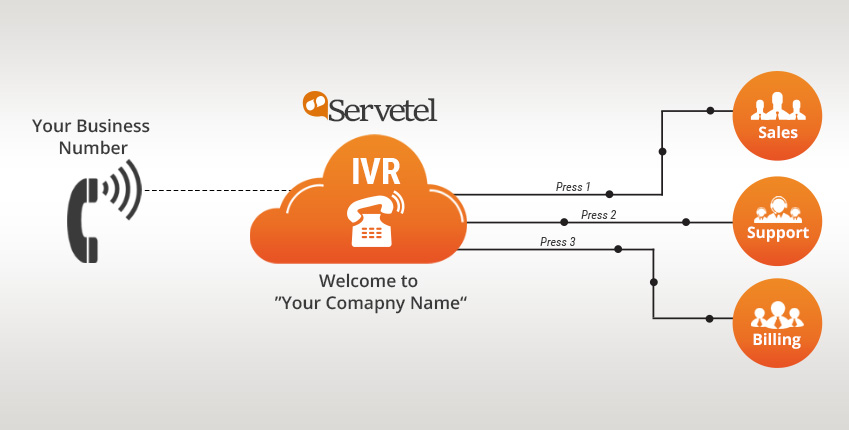It becomes important to remain updated with customer wants and needs if you aim to stay ahead in the business arena. And one such important need and want of customers is to have a seamless customer experience while using your product or service.
Though many factors come into play while shaping the customer experience of any business, yet the one which tops all is – customer service.
With 92% of customer interactions happening over the phone, the role of telephonic communication in providing a smooth customer service becomes inevitable. Thus, to strengthen your customer service having a dedicated customer department such as contact centres becomes a must.
Now, the important question arises, what kind of contact centre should a business go for?
Currently, two major kinds of business communication system are being used in the contact centres, on-premise systems and cloud telephony systems.
Before deciding which communication system will suit your business the best, let’s explore both the systems in detail below.
On-Premise System
On-premise system as the name suggests is an in-house telephony system. The necessary software or hardware is bought by the companies themselves and is installed inside the premises of the organisation.
Traditionally, PBX or EPABX telephony was used by businesses to complete the office needs of internal and external communication. The PBX equipment connects the internal telephones or landlines of an office to the public switched telephone network (PSTN) via trunk lines. However, such a complex system demands complex installation and high maintenance.
Cloud Telephony System
The major difference between traditional and hosted system is the exclusion of physical setup from the company’s premises. In case of cloud telephony, your PBX infrastructure gets hosted on a virtual server which can be accessed with the help of cloud(internet).
Now, all your calls are first redirected to the cloud and are then forwarded to your contact centre agents.
These virtual servers are rented by dedicated cloud telephony service providers who host these PBX services on the cloud. After simplifying the process by eliminating the setup and infrastructure hassle, these services are offered to business for use by service providers.
The lack of on-premise physical setup cuts down your infrastructural and maintenance cost plus provides you with enhanced security, scalability, call monitoring as an add-on feature.
Traditional vs Cloud
After understanding both the systems, now comes the tricky part, which communication system to choose. To make your decision process further easy let’s compare both the systems on the key business parameters which directly impacts your ROI.
1. Cost
If a business opts for traditional PBX, then it has to spend a considerable amount of money on not only in the installation of hardware devices such as an E-PABX box, landlines, routers but also on monthly installments for its maintenance. With a complex physical setup comes a whole IT department for its management which is also an add-on expense on your pockets.
On the other hand, hosting a phone system over the cloud cuts down your upfront infrastructure costs and also provides anytime, anywhere access. Moreover, now you don’t need to hire a dedicated department to handle your infrastructure which cuts down a lot of staff cost.
2. Reliability
On-premise physical setup is difficult to handle especially in case of sudden server failures or natural calamities. Once the server crashes the whole business stands still until the failure is resolved.
But, when it comes to cloud telephony, the chances of failure is quite less, and even if a server faces downtime, then immediately a backup server takes its place to make the system up and running. Hence no loss to the business is caused. This quick uptime of servers makes cloud a reliable option for the business.
3. Security
“Cloud Telephony is less secure than traditional telephony.”
Many such myths about cloud telephony are revolving around the internet questioning the security of cloud telephony.
But statistics suggest that cyber-attacks hit on-premises setup 61.4 times in contrast to a cloud service provider customer who experiences only 27.8 attacks on an average.
The risk involved in both the telephony services is almost the same. But with the advancement of technology and security measures in cloud technology, security is now an age-old concern.
The best part is ‑ security is the concern of service providers, not businesses. Leading service providers like Servetel always ensure security with a dedicated team who keeps a constant check on the security aspects of cloud services.
4. Scalability
“The future belongs to those who prepare for it today.”
-Malcolm X
The future is unpredictable, and the consequence of this unpredictability is reflected in on-premise system. It takes weeks or even months if you plan to expand your business with traditional telephony, while this can be done in a couple of days with cloud telephony. Giving you a great deal of flexibility in not only growing your business but also in its migration. So, by opting for cloud telephony, you are always prepared for any unpredictable business scenarios.
5. Analytics
Cloud telephony is extremely easy to integrate while on the other hand traditional telephony systems are isolated systems and hence require a great amount of effort in integration. Such integrations improve business productivity and save a lot of time.
One can easily improve ROI and performance by integrating the cloud telephony with your ongoing business software or CRM systems. The benefits of Cloud-CRM integration can make you the leader of your industry.
6. Automatic Updates
Change is the only constant
In this technologically evolving era, a businessman strictly needs to follow this law of nature. In case of on-premise, to keep your system up-to-date, you need a dedicated team who can constantly keep a check on the latest technological changes and threats.
However, by hosting your communication system over cloud, you won’t be missing out any technological changes or updates. Best cloud telephony service providers like Servetel ensures that your communication system is future-proof by keeping your cloud telephony system up-to-date automatically.
Final Words
Undoubtedly, cloud has surpassed on-premise systems in all the key business areas. With its cost-effective, hassle-free features, cloud is sure to yield you greater ROI in comparison to on-premise systems. So in order to make your business grow, add cloud telephony to your arsenal.
Reach out to us at 1800-120-4132 to take your business to the cloud.

















